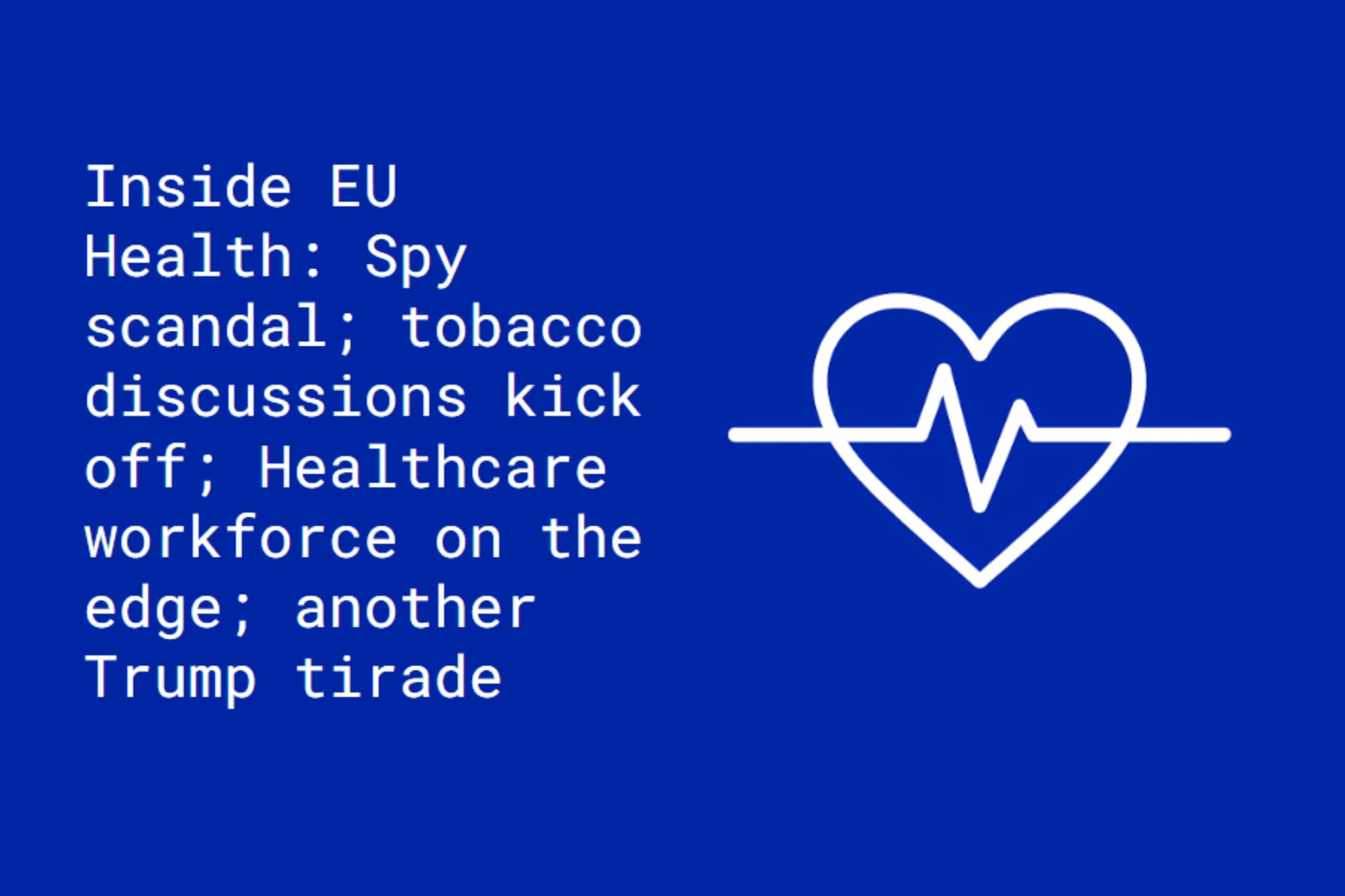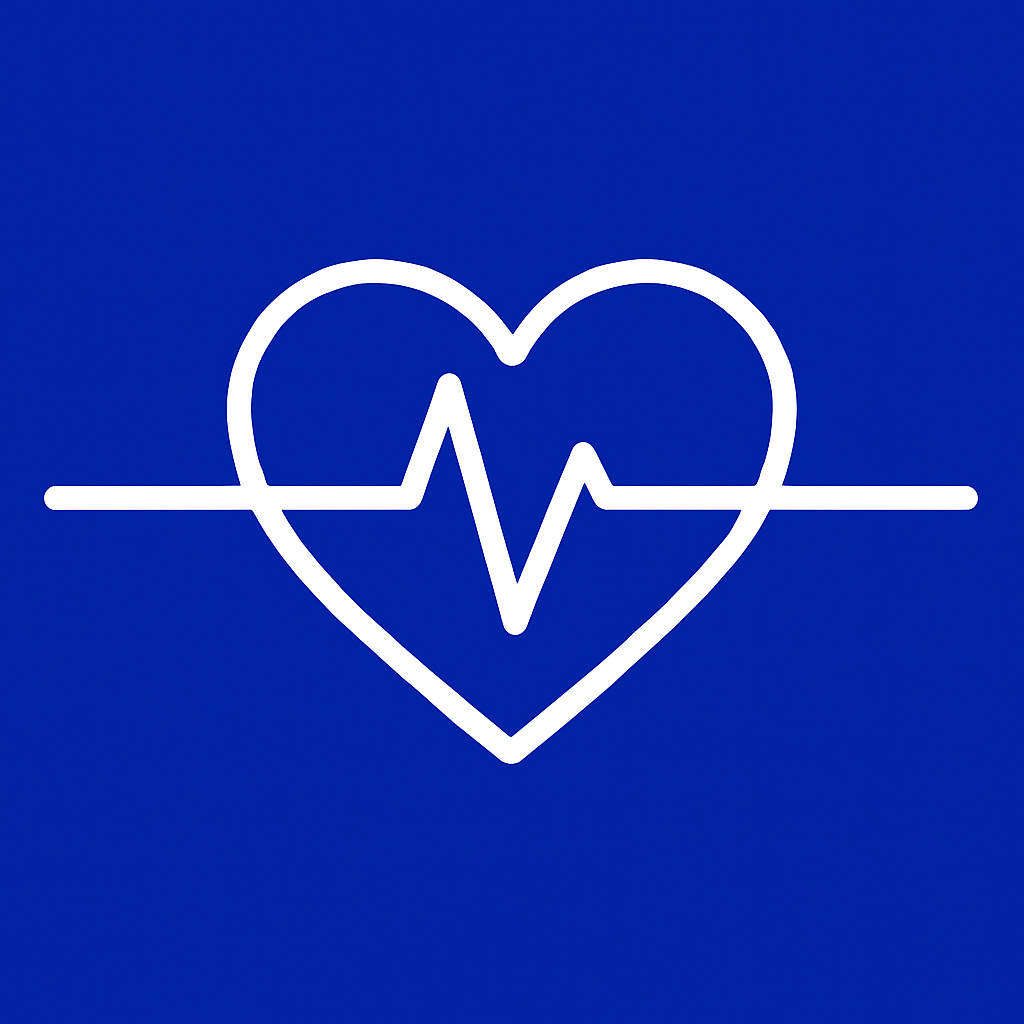Inside EU Health: Alarming report on mental health of healthcare workers - tobacco taxation discussions kick off
Inside EU Health: Spy scandal; tobacco discussions kick off; Healthcare workforce on the edge; another Trump tirade

Hungarian spy scandal overlaps with Várhelyi’s time as top diplomat: A joint investigation by Hungarian outlet Direkt36 and European partners alleges that Hungary’s intelligence service ran espionage operations in Brussels between 2012 and 2018, with officers working under diplomatic cover at Hungary’s EU mission. During much of this time, Olivér Várhelyi - now EU Health Commissioner - served as a senior diplomat and later head of the mission.
Though there is no evidence Várhelyi directed the spying, sources claim he was aware of it and maintained contact with intelligence officials. The European Commission has launched an internal review, stressing there is no sign he breached any rules. The case renews scrutiny of Várhelyi’s perceived loyalty to Prime Minister Viktor Orbán and past accusations of promoting Budapest’s agenda within EU institutions. Read more here.
Tobacco taxation: Finance ministers will have their first discussions on the Commission proposal for a revision of the Tobacco Taxation Directive at today’s ECOFIN Council in Luxembourg. Arriving at the meeting the Commissioner Hoekstra said: “Europe has a significant problem; according to the WHO we're back at the number one spot of tobacco consumption in the world.”
The Commission reported that tobacco consumption is the single largest avoidable health risk, and the most significant cause of premature death in the EU, estimated to be responsible for nearly 700,000 deaths every year.
Hoekstra described vaping as “the revenge of the tobacco industry, because it is targeted deliberately at the young, making them susceptible to this specific product.”
Commissioner Hoekstra arriving at ECOFIN for discussion on revision of the Tobacco Taxation Directive
The discussions are accompanied with proposals to amend the Excise Duty Directive, which would be aligned to the Revised Taxation Directive. The aim would be to stem cross-border shopping for cheaper cigarettes. Hoekstra said that European member states are losing €13 billion every single year in terms of evasion and fraud.
WHO/Europe sounds alarm on the mental health of the healthcare workforce: On World Mental Health Day 2025, WHO Regional Director for Europe Dr Hans Henri P. Kluge issued a stark warning: “Europe’s health systems are under threat – and mental health is at the heart of the crisis.” Launching the Mental Health of Nurses and Doctors Survey (MeND) in Copenhagen, he revealed that the largest study of its kind - with over 90,000 responses from 29 European countries - shows a worrying toll on health workers. One in three doctors and one in four nurses experience symptoms of depression or anxiety, with suicidal thoughts occurring at twice the rate seen in the general population.
The report highlights troubling working conditions that are harming staff wellbeing. Many doctors and nurses face bullying, violence, and harassment, with one in ten experiencing physical or sexual violence in the past year. Long hours, heavy workloads, and job insecurity are worsening the situation. Nearly a third of doctors are on temporary contracts, and one in four works over 50 hours weekly.
Dr Kluge stressed that protecting the mental health of health workers is essential to Europe’s health security. WHO/Europe is calling for urgent action, including zero-tolerance policies on workplace violence, fairer contracts, flexible scheduling, and confidential mental health support. “A profession chosen with humanity and purpose should never demand the sacrifice of health and dignity,” he said.
Trump claims tariff threat is driving medicine price cuts: At a cabinet meeting yesterday (9 October) US President Donald Trump said that his administration’s use of tariff threats helped secure historic reductions in pharmaceutical prices, arguing that other countries had long taken advantage of the U.S. drug market.
So far there has only been one deal with Pfizer on drug prices and that included discounts averaging 50%, the full details of the deal have not been disclosed. Nevertheless, Trump claimed that his strategy has led to “drug reductions of 100%, 150%, 200%, 300%, 400%, 500%.” Read our article on the Pfizer deal here.
“It really makes me angry, because for years and years… we subsidized the world,” Trump said, criticizing foreign nations for paying far less for the same medications made in the same factories. “If a pill sells for $10 in London and $100 here, the pill will go to $20 in London, and $20 for us. It’s pretty simple.”
According to Trump, when other countries resisted negotiating lower prices, he threatened tariffs to level the playing field. “I said, that’s okay, but I’m going to put a tariff of 9% or 7%… for the amount of money that you’re taking advantage of us for,” he said. “They would immediately agree.”
There has also been pressure on pharma companies to invest in US-based production. Yesterday, AstraZeneca announced plans to invest $50 billion in America for medicines manufacturing and R&D. The company headquartered in the UK recently halted a planned £200 million investment in a Cambridge research site, in what was seen as a blow to the UK’s pharmaceutical sector.
